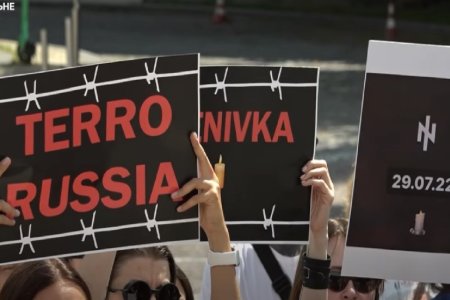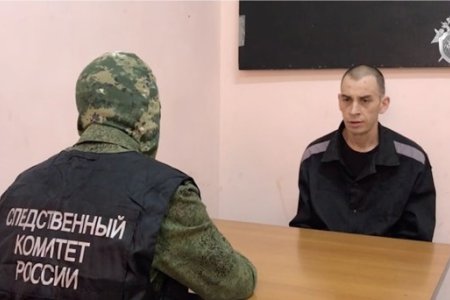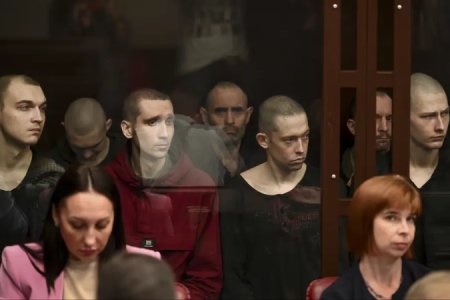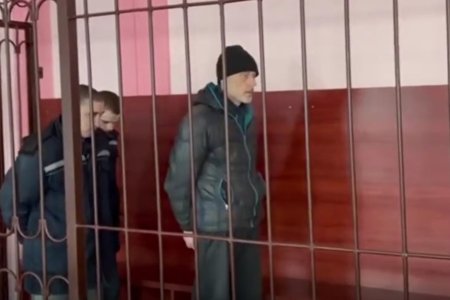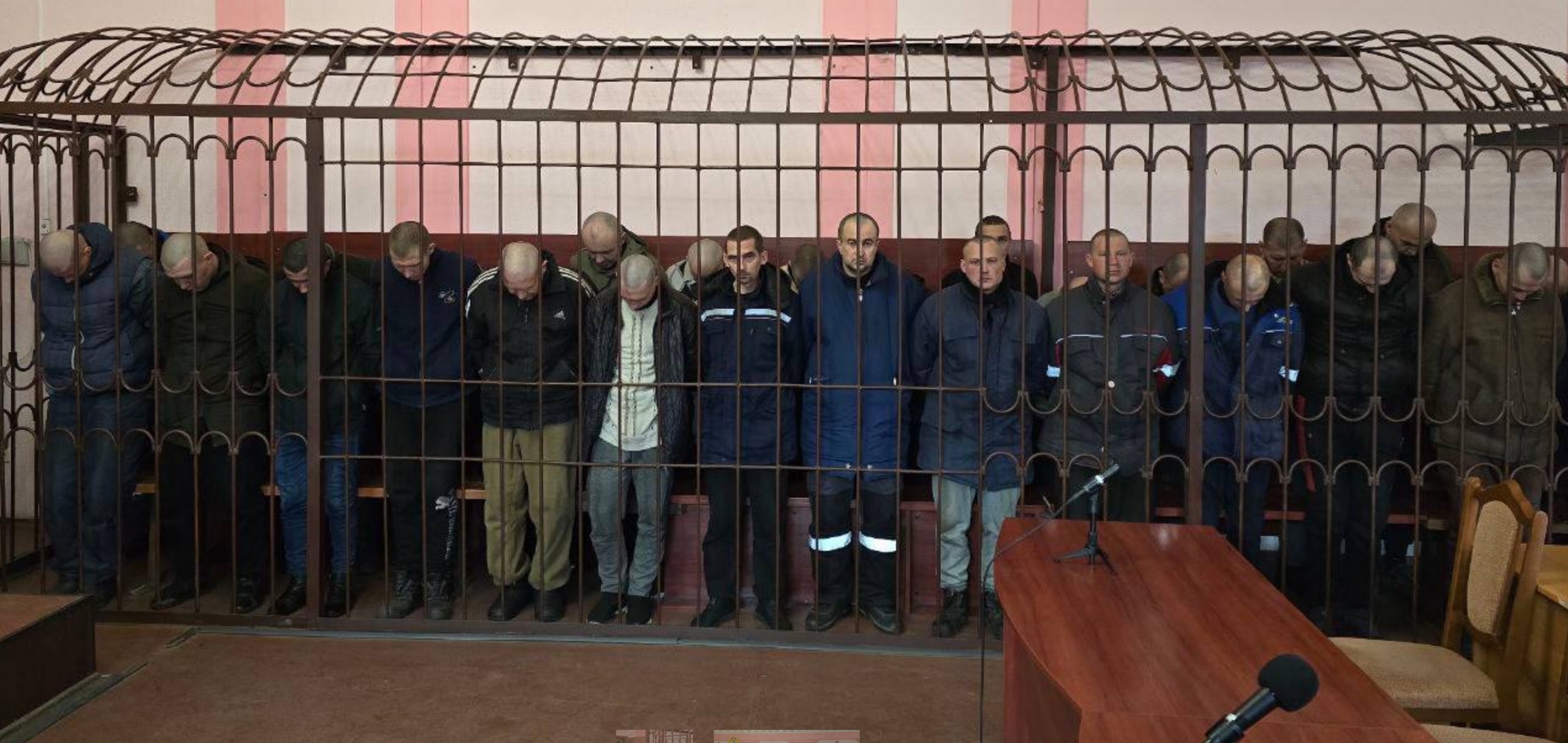
Russia is continuing to demonstratively violate international law by staging illegal and effectively secret ‘trials’ of Ukrainian prisoners of war on occupied Ukrainian territory. On 7 February 2024, an unrecognized ‘court’ in Russia’s fake ‘Donetsk people’s republic’ ‘sentenced’ 33 soldiers from Ukraine’s Armed Forces to terms of imprisonment from 27 to 29 years. The charges in all such cases are especially cynical since the aggressor state which has been bombing Ukrainian cities and killing civilians since 24 February 2022 has effectively charged Ukrainians defending their own country with Russia’s war crimes.
Although the mass sentencing of 33 prisoners of war reported on 7 February 2024 was the worst to date, Russia has been illegally churning out such illegal ‘rulings’ since quite early in 2023. In almost all such cases, the only information about the alleged ‘trial’ comes from the reports, post fact, issued by Russia’s prosecutor general’s office and ‘investigative committee’. There is every reason to assume that the men were deprived of even the most fundamental aspects of a fair trial, and, in the vast majority of cases, that they were tortured into ‘confessing’ to whatever charges are laid, with the videos of such ‘confessions’ typically posted by the Russian enforcement bodies and propaganda media.
The Russian prosecutor general’s office reported the sentences, passed by the so-called ‘Donetsk people’s republic high court’, on 7 February. The prisoners of war involved were from the 36th Marine Brigade and the 17th Tank Brigade of Ukraine’s Armed Forces. The report claiming that the Ukrainian soldiers had shelled residential buildings in their own country were posted just hours after Russia launched its latest missile strikes on Ukrainian cities, hitting residential buildings nd killing a number of civilians.
The men were all accused and convicted “in accordance with their role and level of involvement” of several charges under Russia’s criminal code although the actions were alleged to have taken place in February and March 2022 on Ukrainian territory. The charges were those that have become standard in such pseudo trials, namely Article 356 § 3 (the use in an armed conflict of prohibited means and methods); Article 105 § 2 (killing through publicly dangerous methods by a group of people motivated by political and ideological enmity; the same article, alleging attempted murder with the same motives, etc; and Article 167 § 2 (deliberate damage to other’s property through explosions causing considerable damage).
It was claimed to have been established that the soldiers had, together with others, shelled Zaichenko; Sakhanka; Dzherzhynske; Sartana; Talakivka and Stary Krym in Donetsk oblast which were not, as the report claimed, included at the time in Russia’s illegal ‘Donetsk people’s republic’. The report asserts that this was with “the aim of destroying social infrastructure, intimidating and killing civilians” and that a 17-year-old was killed; a woman received injuries; and that property was damaged.
Prisoners of war are protected under international law, binding upon both Russia and Ukraine, from prosecution merely for serving in their country’s armed forces. Such protection does not extend to war crimes which would include the deliberate killing of civilians. Any such allegations would, however, need to be adequately proven in a proper court of law where the men’s right to a fair trial was fully observed. Not, as in all of these fake ‘trials’, before a kangaroo ‘court’ without any possibility of examining the evidence; almost certainly without access to independent lawyers and without even the International Committee of the Red Cross able to visit the men. Here even the men’s names remained a mystery, with the prosecutor general’s office not mentioning any of them and the investigative committee only naming a few (Yury Akimov; Serhiy Dovhaliuk; Mykhailo Izotov; Denys Nazarov; Oleksandr Oleinyk; Serhiy Paliychuk; Oleksandr Plotnikov; Yevhen Poptsov; Roman Shostak; Artem Shvydky; and Volodymyr Torshin.) Instead the Russian prosecutor general’s office posted videos showing the men being herded, in deliberately degrading fashion, into a cage in the so-called ‘court’ and a photo where only some of the men can be clearly seen.
On 30 January, the same Russian prosecutor general’s office showed similarly degrading treatment of another prisoner of war, Vasyl Tkachuk. He was claimed to have ordered the shooting of ten civilians in Mariupol, with the charges essentially the same as those reported on 7 February. Tkachuk was sentenced to life imprisonment by the same illegitimate ‘DPR high court’.
See also:
